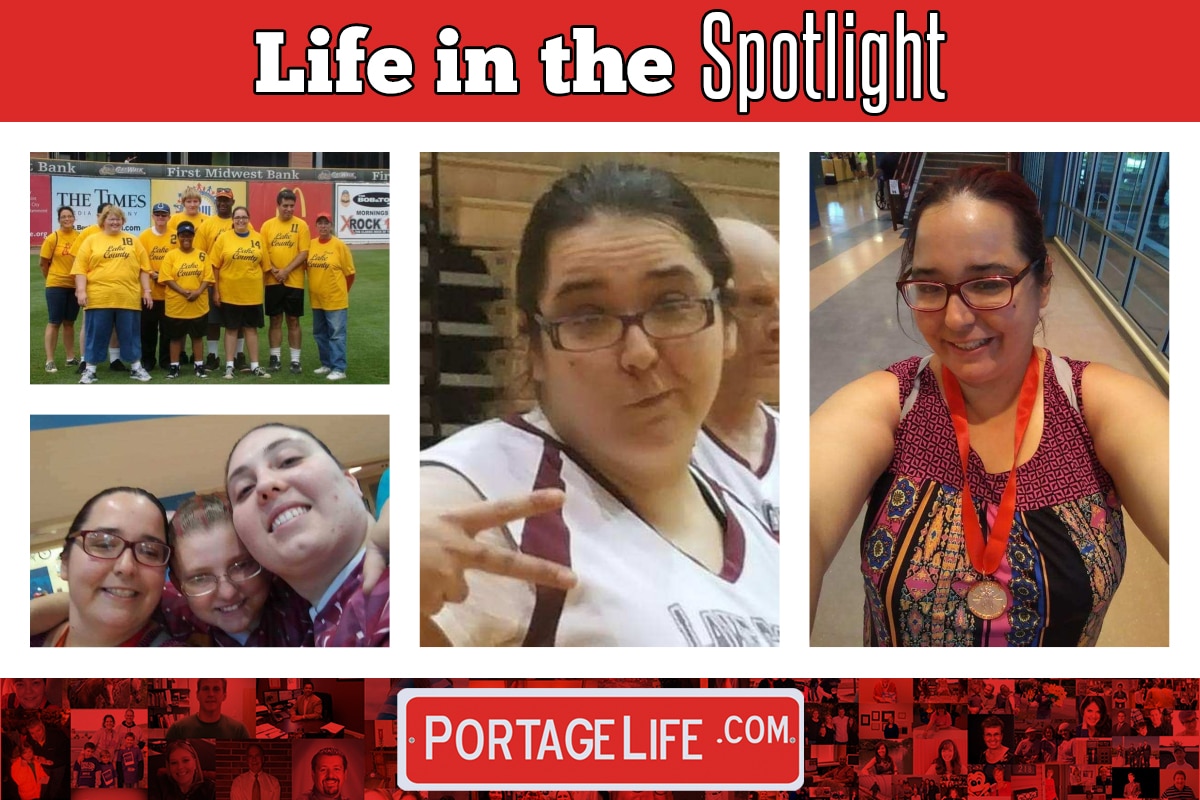Stephanie German, a Special Olympic athlete, is thankful to be alive. Last summer, she left work because she had flu-like symptoms with a high fever. She thought it was a virus. At home, she rested and expected to feel better. Instead, her symptoms worsened, sending her to the Emergency Room.
German was diagnosed with a staghorn kidney stone, which is a large, branching stone that could be fatal if left untreated. She was rushed to Porter Regional Hospital for an emergency operation to remove her kidney and save her life.
“It was scary and it changed my outlook on life,” German said. “It made me realize that you should take health seriously.”
German was nervous about the pending operation, but felt fortunate to be safe in the hospital. With her mother by her side, she drifted to sleep. A few hours later, she awoke in a panic. She could not breathe. Nurses rushed into her room and transferred her to the intensive care unit (ICU). Doctors believed morphine caused her oxygen levels to drop dangerously low.
“I was gasping for air,” German said. “I think there was someone watching over me and protecting me.”
German’s oxygen levels were stabilized, and she was ready for the operation. The love and support of German’s mother and family gave her the courage to face the surgery. It was a success, and she was on her way to recovery.
Then, she received heartbreaking news.
“My kidney doctor told me I would never be able to play sports again,” German said. “I feel like crying everytime I think about it. I was devastated and everything had to change.”
In 2005, when German was in high school, a friend encouraged her to try Special Olympics volleyball. With the Lake County Special Olympics, she discovered her passion for all things sports, including volleyball, basketball, softball, and bowling. The friends she made became an extended family, who helped her cope with the unique obstacles she faced as a teen.
German has a learning disability, experiences grand mal seizures, and has a speech disorder. She was the target of bullying, so Special Olympics was an opportunity to find friends going through similar things.
“I have a disability, but I learned that it doesn’t matter, and I can still be whoever I want to be,” German said.
“I love meeting the different individuals that have special needs. It’s amazing what they are capable of doing. It’s a great experience.”
For 13 years, German has enjoyed sports, friendship, and fun with the Special Olympics. Her home is riddled with the trophies, medals, and photos of her years as a Special Olympic athlete.
“Everyone knew me and loved me,” German said. “It was a great opportunity.”
Today, German, 31, struggles with the fact that she cannot play anymore. Her doctor wants her to be careful with her remaining kidney, so she cannot risk potential damage from physical activities.
Regardless, German is not giving up. She looks forward to a different role, perhaps taking on coaching. Her days playing on the court may be over, but the memories, friendships, and passion for sports remains. German hopes that her story will inspire others to notice the person, not just the disability.
“Don’t judge a person by what they are capable of doing. Everyone is special and they will be successful no matter what they do in life,” German said. “No matter what, stay strong and never give up.”
